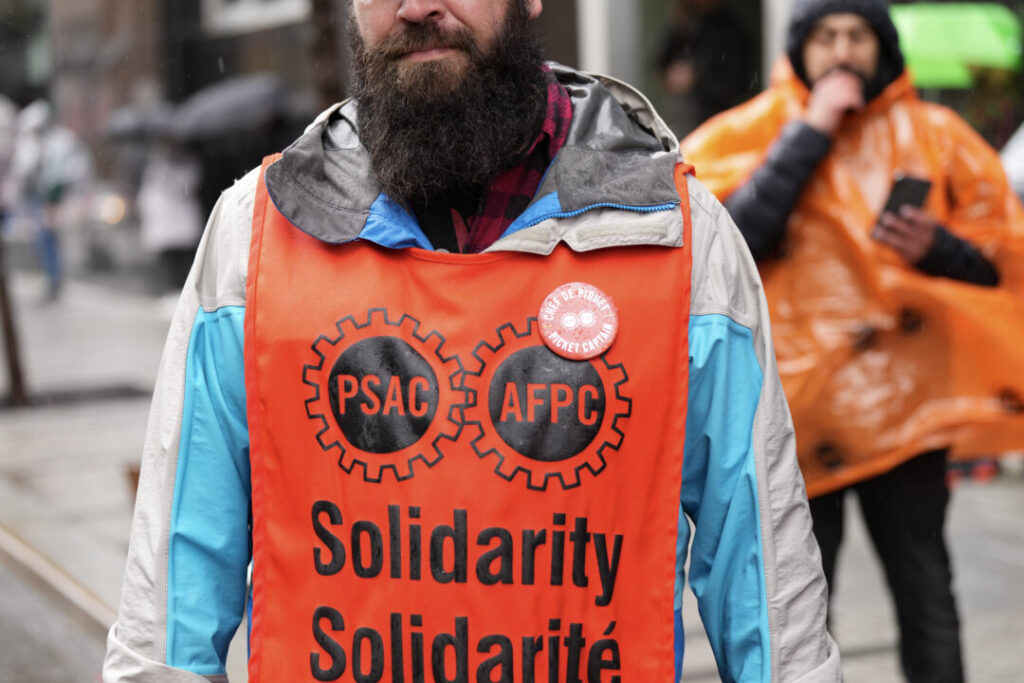The federal immigration agency plans to cut about 3,300 jobs over the next three years.
In a joint statement released Monday, the Public Service Alliance of Canada and the Employment and Immigration Union of Canada said Immigration, Refugees and Citizenship Canada (IRCC) did not say who would be affected by the cuts.
The union said further information was expected to be released in mid-February, but the cuts were brought up at a union management meeting before staff were notified. Both unions are calling on the government to reduce outsourcing rather than layoffs.
In an internal memo obtained by The Canadian Press, IRCC Deputy Minister Dr. Harpreet S. Kochhar and Deputy Minister Scott Harris said that “many” fixed-term positions as well as some permanent positions “will be eliminated.” I told the employees.
“While the affected functionality has been identified, the individuals have not been identified,” the memo said. “Our plan is to first notify affected individuals before expanding the picture of how this will impact teams, sectors and divisions.”
The memo says about 3,300 jobs will be cut over the next three years, with 20% of those jobs affecting full-time employees. Affected employees will receive letters starting in mid-February.
The department’s fixed-term workforce will also be “significantly reduced,” with some fixed-term contracts either not being renewed or ending early, the memo said. Affected period employees will be given at least 30 days’ notice, possibly as early as mid-February.
“We are building an organization that is fit for purpose, fit for capacity and fit for budget,” the memo said, adding that funding changes were adding pressure “in an already constrained budget context.”
Civil servants have been braced for layoffs since the government began efforts to refocus federal spending in 2023.
The government aims to save $15.8 billion by 2027 and $4.8 billion annually thereafter.
The department-level spending reduction plan is expected to start at $237 million in 2025-26 and reach $336 million by 2027-28, according to the memo.
“It is clear that our department will shrink in the future,” the memo said. “We are working under ever-increasing budgets and will now have to learn how to live within established and reduced budgets. And it will impact every sector and every branch across IRCC at every level, including ADM and sector level.”
The department said it has reduced headcount through employee reductions and redeployments, limited external hiring, and introduced staffing controls to evaluate all appointments based on budget and operational needs.
“The past few years have been a period of rapid growth and change for IRCC,” department spokesman Jeffrey MacDonald said in an email Friday. “We are responding to global crises, including the pandemic, by becoming more integrated, modernized and centralized to increase intake of both permanent and temporary residents and speed up application processing globally. I moved to a new working environment.
“These measures were primarily supported by temporary funding and were not permanent.”
PSAC and CEIU said the department’s employees are essential for tasks such as processing citizenship and permanent residence applications, issuing passports and conducting interviews.
“Immigration waiting times have continued to reach record backlog levels over the last month, and these cuts will only worsen an already dire situation,” CEIU national president Rubina Boucher said in a media statement. said. “Families desperate to be reunited, businesses suffering from severe labor shortages, and health systems in desperate need of skilled workers will all suffer the consequences of this reckless decision.”
In response to the planned cuts, Nathan Pryor, president of the Canadian Association of Professional Employees, sent a letter to Immigration Minister Mark Millar, saying that the cuts should not be made until Parliament reconvenes and “clearer national direction is provided.” We asked them to put it on hold or at least slow down.” We may now be facing an imminent crisis in our relationship with the United States. ”
“A strong and well-equipped federal workforce is essential to protecting Canada from external pressures, especially given our increasingly hostile neighbors,” Pryor said.
According to the Government of Canada website, there were 13,092 civil servants working in Immigration, Refugees and Citizenship Canada in 2024. The total population of civil servants in 2024 was 367,772.



